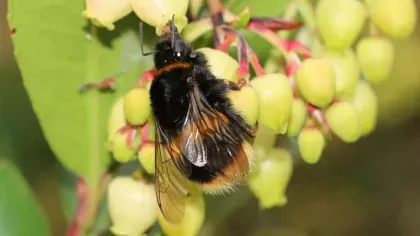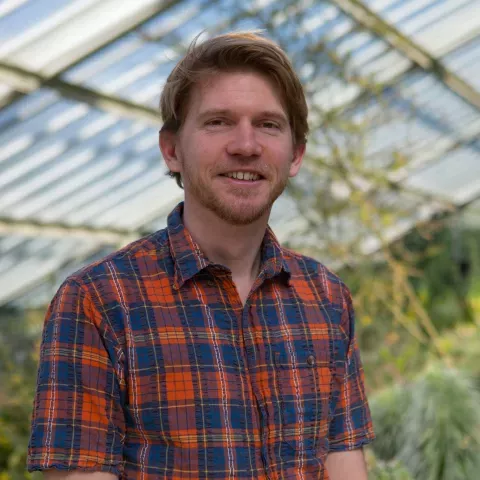
6 May 2022
Research Leader

The pollen and nectar diet of pollinators contains a rich diversity of plant metabolites. So far, the impact of plant secondary compounds on pollinator health remains however poorly understood. As the Ann Sowerby Fellow in Pollinator Health at Kew, I am investigating the chemical diversity of pollen and nectar in important bee foraging plants of the UK, and the effect of selected compounds on microbial parasites of bees. I am especially interested in experimentally testing the interactions between secondary plant compounds, parasites, and the specific bacterial gut microbiome of bees. Ultimately, an improved understanding of beneficial or detrimental effects of native or invasive flowering plants on bee health will help to better support pollinator populations in the UK. Given the growing concerns about pollinator decline caused by habitat destruction, pesticides, and global spread of pathogens, this research is particularly urgent.
Folly, A.J., Koch, H., Farrell, I.W., Stevenson, P.C. & Brown, M.J.K., (2021)
Proceedings of the Royal Society B, 288: 20210363.
Zu, P., Koch, H., Schwery, O., et al. (2021)
New Phytologist, 230: 1169-1184.
Koch, H., Woodward, J., Langat, M.K., Brown, M.J.K & Stevenson, P.C., (2019)
Current Biology, 29: 3494-3500.
Mockler, B.K., Kwong, W.K., Moran, N.A. & Koch, H. (2018)
Applied and environmental microbiology, 84: e02335-17.
Koch, H. & Stevenson, P.C., (2017)
Biology letters, 13: 20170484.
Koch, H., Brown, M.J.K. & Stevenson, P.C. (2017)
Current opinion in insect science, 21: 60-67.
Kwong, W.K., Medina, L.A., Koch, H., et al. (2017)
Science Advances, 3: e1600513.